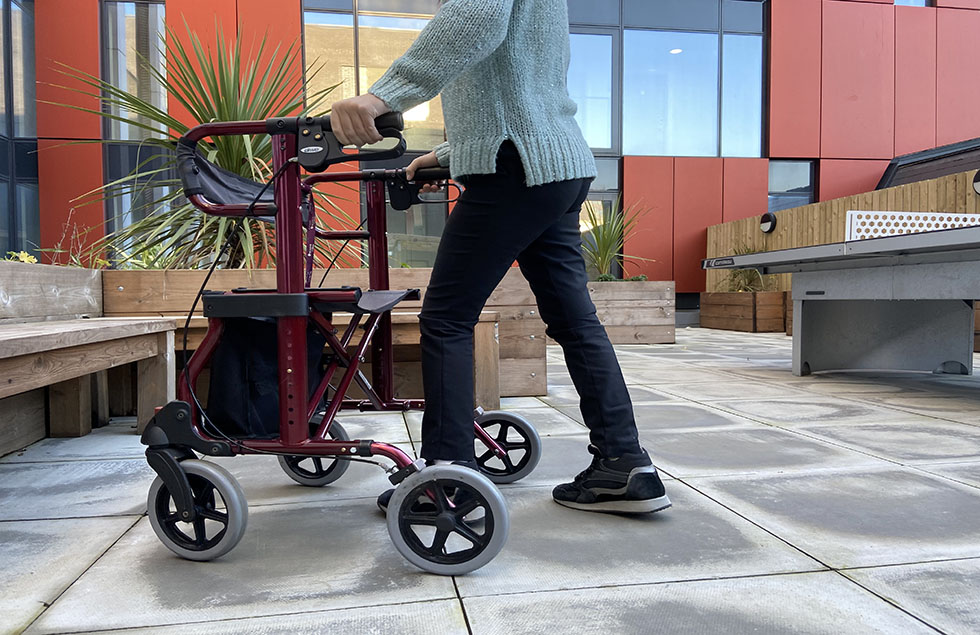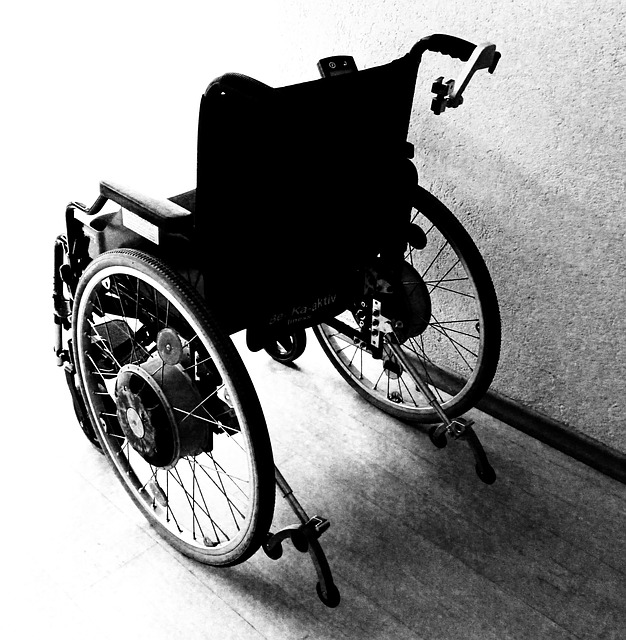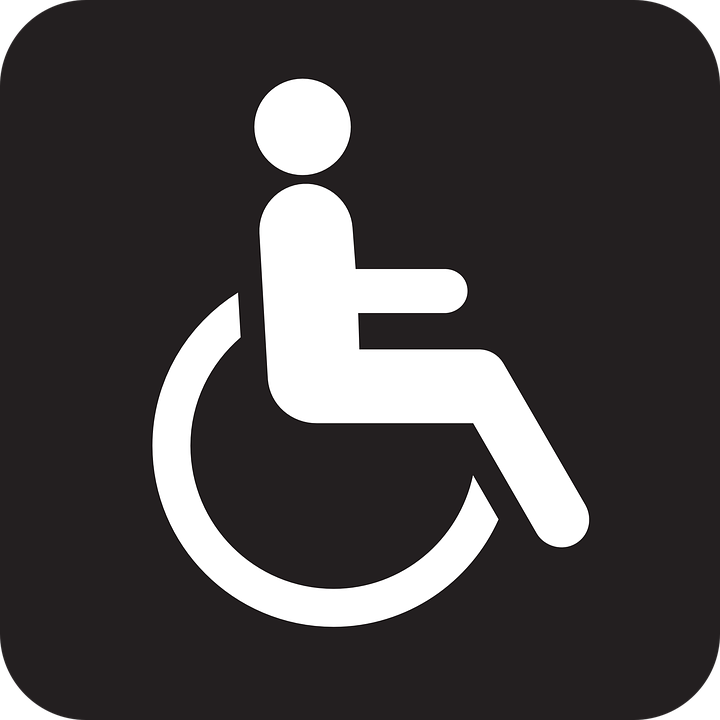Why are government benefits important?
An anonymous source based in Cardiff explained how she spends the money the government grants her due to her disability.
“Most of my money goes into mobility aids: wheelchair, scooter, walking frame and anything else extra, such as taxi. And if you want good equipment you need to know that you are likely to spend thousands of pounds.
“I also use the money for a cleaning service. I now pay £10 but a week but, a few years, back I used to pay £30 a week.
“I use the money for my chiropractor, which is £35 a week. I need it because it helps me to relax my muscles and if I don’t go they might shrink, which is painful. For the same reason I go to the swimming pool. This is much cheaper as it usually costs my between £10 to £15 a week.
“I do my food shopping online and get it delivered at home. I do this to avoid having to walk each day to the local shop, which is tiring and time consuming for me. Every time I do my shopping online I buy a lot of food so that it can last me three to four weeks. I typically spend around £90 each time.”
Remember Margo who broke her back & was refused mobility benefit, early this yr was diagnosed with cancer of the spine, despite GP sending DWP end of life evidence in April, she died just 2 months ago, not receiving a penny from DWP, worked all her life RIP Margo shame on U DWP pic.twitter.com/b92Qc8hMKK
— KATHIE BENNETT #VoteLabour (@kathiebennett) 10 dicembre 2019
In a country praised for its inclusivity, how can the government let disabled people down for seven years and counting?
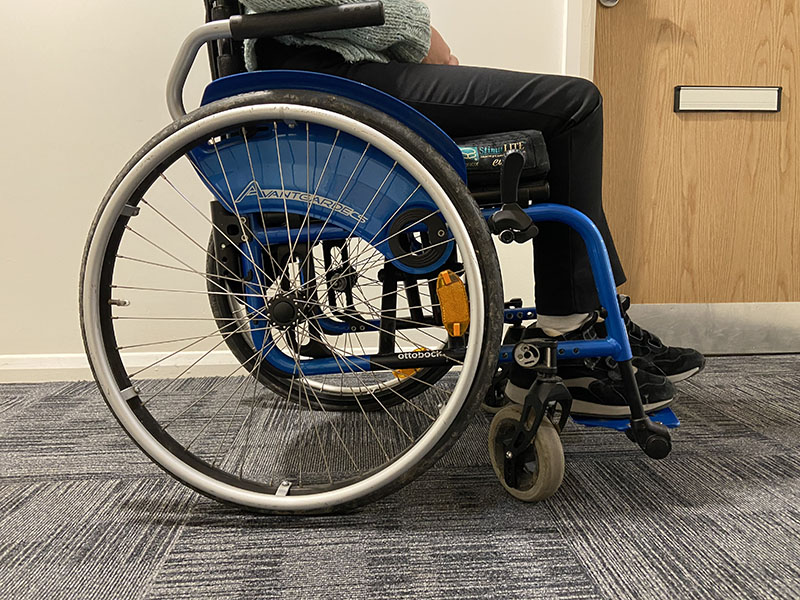
Waiting for a payment that could make a difference between living in poverty or with dignity, between life and death, is a situation that no one would want to live in. A sense of insecurity, of hope crushed by the weight of negative thoughts, provoked by the knowledge of what many had to endure and are still enduring, occur all too frequently for those waiting for for Personal Independence Payment (PIP).
PIP was introduced in 2013 to replace the Disability Living Allowance (DLA). The majority of people claiming PIP were previously granted DLA, but now do not know whether they will still be eligible for state benefits. The uncertainty in the air is thick during the many weeks claimants have to wait for an answer from the Department of Work and Pensions (DWP).
In 2013 it was guaranteed that the waiting times for PIP would be short (four weeks) and the system efficient. But the loss of more than 17,000 lives, people left living in poverty for weeks (months sometimes) therefore losing their independence, will disagree.
News tonight that someone I have known for years. Went into hospital for a variety of ops last year. Health deteriorated. Went blind in one eye. Failed her PIP assessment, had the mobility car taken away. Been waiting over a year for a tribunal. Yesterday she collapsed and died.
— Random Gildersleeve Esq. Not My Government. (@Gildy55) December 11, 2019
It seems like a good time to talk about the issues and daily challenges that PIP has brought into the lives of many during the month of the International Day of Persons with Disabilities (3 December) and of the Human Rights Day (10 December); international days aiming to shed light on overlooked issues that minorities face every day of the year.
An Unfair Form
Louisa Davies is 30 years old and has autism, cerebral palsy, mental health issues and cannot speak. She lives with her mother, Ann Davies, who looks after her, in their home near Caerphilly. When the PIP was introduced they applied to it. Ann believes that, although the process to request benefits has always been complicated, the one for PIP is even more difficult and unfair. Some questions she read on the form are “Can you put a pen in your top pocket?” or “If there was a box on the floor, would you be able to pick it up and move it from the right to the left?” If you can do these simple actions, then you are regarded as fit for an office job, she added.
Ann believes that the process to re-claim benefits should not be complicated for people with serious disabilities, as the DWP already has information on them. She is aware that some people applying for PIP had to wait for an answer for more than six weeks, unlike her daughter Louisa. She knows that these people have lost access to health services and facilities, due to the lack of financial support from the government.
In a video posted by the DWP the process to claim PIP seems fairly straightforward.
Easy, right?
Unfortunately the reality is much more complicated and much more painful for those who have to go through this process.
Words asking for fairness
Rob Palk is a writer based in Leicester, author of the novel Animal Lovers (2018). A few years back he suffered from an unexpected
brain haemorrhage which left him permanently visually impaired. Due to this accident he was granted the lowest rate of DLA. When he finally received a letter advising him to apply for PIP he followed all the steps leading to his face-to-face assessment.
“I appealed but it got rejected because they kept sending information about it to my old address“
As he stated in an article published by The Guardian, he put in the effort to be agreeable and hospitable to the assessor. Yet, the DWP decided not to accept his claim to PIP. In fact the report stated that he could see well enough to drive (although he did not know how to drive even before the haemorrhage), and he did not suffer from stress or anxiety as he seemed engaging, calm and made eye contact.
“I appealed but it got rejected because they kept sending information about it to my old address and I’m now trying to reopen it,” he told Alt.Cardiff. Due to this uncertainty, his stress and anxiety got worse. Rob confirmed, “I am prone to being stressed and anxious since the brain haemorrhage. And the appeal makes it worse. Ironically that is what they claim I don’t have.”
I'm going through all my evidence for my PIP Tribunal this afternoon and it's making me Really Angry. I'm not sure what more evidence I can provide when they say I have 'no physical restrictions' when I turned up in a wheelchair #chronicillness #PIP #disabledacademic
— Elli the Baby PhD (@ellithebabyphd) December 10, 2019
Not alone
He is not alone in his battle, as many disabled people believe the new system is broken and accuse the government of being unwilling to help citizens in need.
Allegations from other disabled people who have been assessed for their PIP accuse independent health professionals of lying and dishonestly reporting the results of physical examinations. A secretly filmed video shows assessors allegedly being monitored to ensure they don’t find excessive numbers of disabled people eligible for benefits.
Independent organisations too have begun complaining about a system that keeps failing its disabled citizens. Scope, a disability equality charity based in Wales and England, stated that disabled people rely on these financial lifelines to live independently and be part of their community.
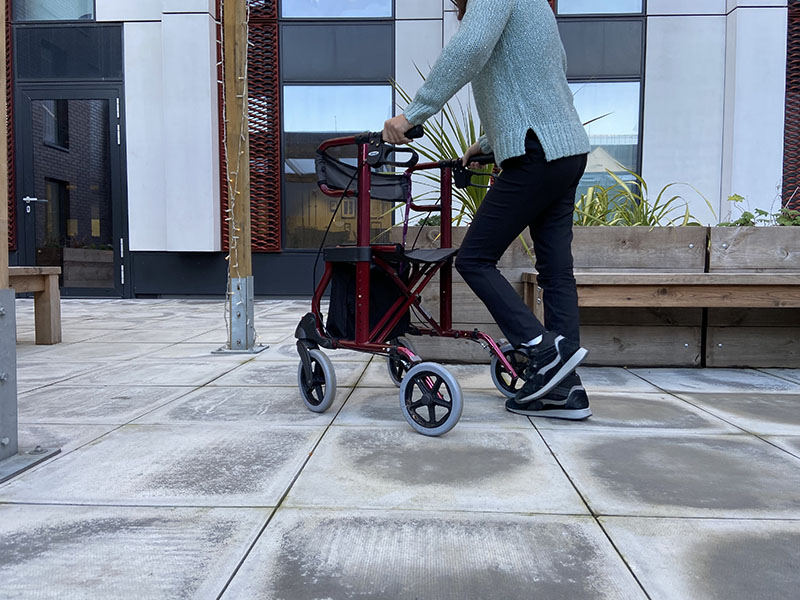
Just heard another friend has had her #pip claim refused. Losing her car will mean she loses her job & freedom.
— Mik Scarlet (@MikScarlet) November 21, 2019
Getting really fed up with how unfair this system is on people who are fully entitled to support.
However, people are being stripped of their independence, of their basic human rights and being forced to go through painful and “dehumanising” assessments. Complaints about the PIP procedure rose by nearly 880%, according to the Department for Work and Pensions in 2016. The number of deaths of terminally ill people have skyrocketed, with 17,070 reported on January 2019. Others, like Rob, have been living close to poverty, who is usually three months away from him. The insecurity and the negativity are crawling closer. But hope needs to stay alive.
Why are government benefits important?
An anonymous source based in Cardiff explained how she spends the money the government grants her due to her disability.
“Most of my money goes into mobility aids: wheelchair, scooter, walking frame and anything else extra, such as taxi. And if you want good equipment you need to know that you are likely to spend thousands of pounds.
“I also use the money for a cleaning service. I now pay £10 but a week but, a few years, back I used to pay £30 a week.
“I use the money for my chiropractor, which is £35 a week. I need it because it helps me to relax my muscles and if I don’t go they might shrink, which is painful. For the same reason I go to the swimming pool. This is much cheaper as it usually costs my between £10 to £15 a week.
“I do my food shopping online and get it delivered at home. I do this to avoid having to walk each day to the local shop, which is tiring and time consuming for me. Every time I do my shopping online I buy a lot of food so that it can last me three to four weeks. I typically spend around £90 each time.”
Remember Margo who broke her back & was refused mobility benefit, early this yr was diagnosed with cancer of the spine, despite GP sending DWP end of life evidence in April, she died just 2 months ago, not receiving a penny from DWP, worked all her life RIP Margo shame on U DWP pic.twitter.com/b92Qc8hMKK
— KATHIE BENNETT #VoteLabour (@kathiebennett) 10 dicembre 2019

